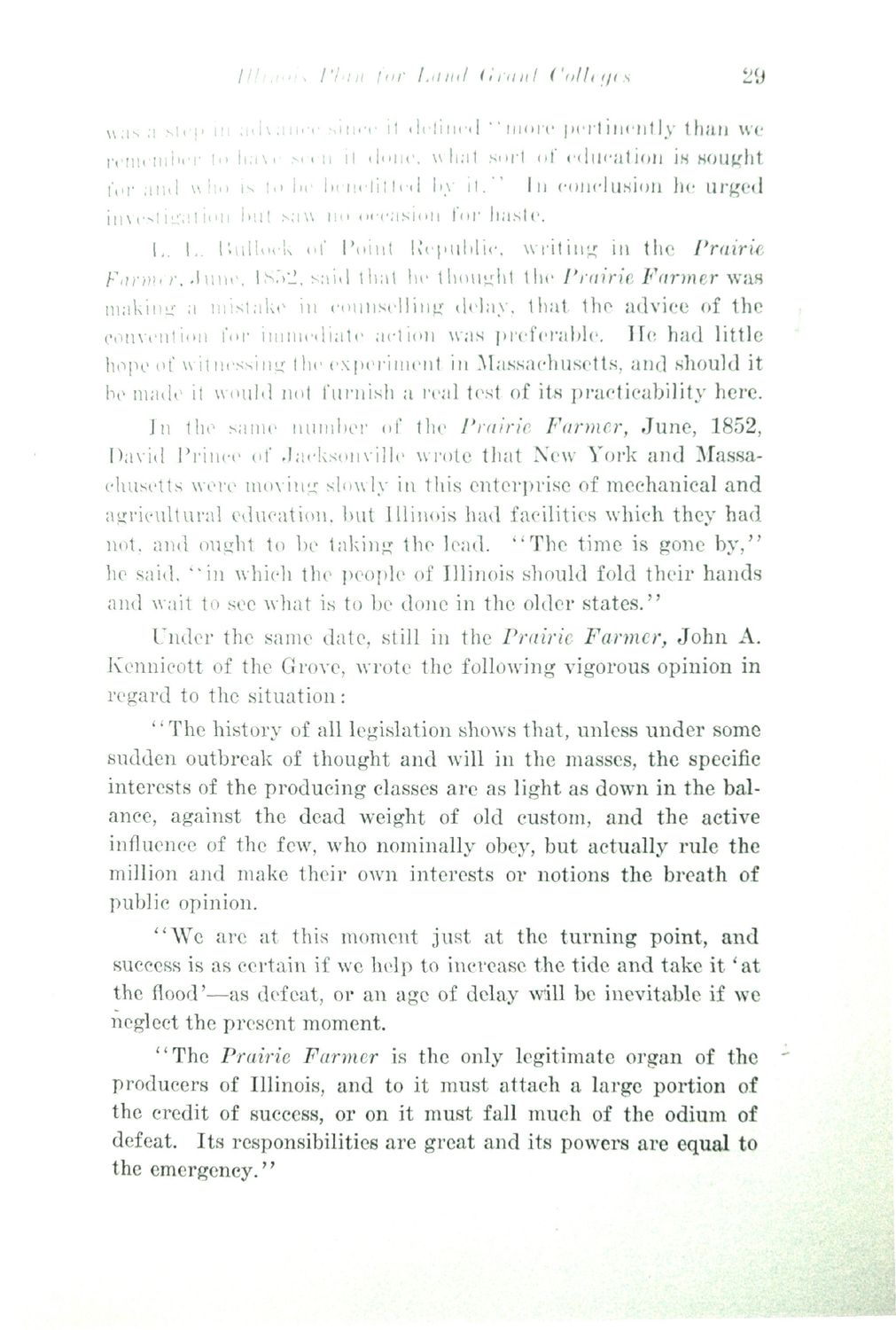| |
| |
Caption: Book - History of the University (Powell)
This is a reduced-resolution page image for fast online browsing.

EXTRACTED TEXT FROM PAGE:
Illinois Plan for Land Grant Colleges 29 was a step in advance since it defined "more pertinently than we remember to have seen it done, what sort of education is sought for and who is to be benefitted by it/ 3 In conclusion he urged investigation but saw no occasion for haste. L. L. Bullock of Point Republic, writing in the Prairie Farmer, June, 1852, said that he thought the Prairie Farmer was making a mistake in counselling delay, that the advice of the convention for immediate action was preferable. He had little hope of witnessing the experiment in Massachusetts, and should it be made it would not furnish a real test of its practicability here* In the same number of the Prairie Farmer, June, 1852, David Prince of Jacksonville wrote that New York and Massachusetts were moving slowly in this enterprise of mechanical and agricultural education, but Illinois had facilities which they had not, and ought to be taking the lead. "The time is gone by,'3 he said, "in which the people of Illinois should fold their hands and wait to see what is to be done in the older states." Under the same date, still in the Prairie Farmer, John A. Kennicott of the Grove, wrote the following vigorous opinion in regard to the situation: "The history of all legislation shows that, unless under some sudden outbreak of thought and will in the masses, the specific interests of the producing classes are as light as down in the balance, against the dead weight of old custom, and the active influence of the few, who nominally obey, but actually rule the million and make their own interests or notions the breath of public opinion. "We are at this moment just at the turning point, and success is as certain if we help to increase the tide and take it 'at the flood'—as defeat, or an age of delay will be inevitable if we neglect the present moment. "The Prairie Farmer is the only legitimate organ of the producers of Illinois, and to it must attach a large portion of the credit of success, or on it must fall much of the odium of defeat. Its responsibilities are great and its powers are equal to the emergency."
| |